34 ways to Earn Passive Income Selling Digital Product

Introduction to Passive Income through Digital Products
Passive income refers to revenue earned with minimal ongoing effort or investment of time once the initial setup is complete. Unlike traditional employment, where income is directly correlated with hours worked, passive income offers an alternative revenue model that can continue to generate earnings long after the initial work has been accomplished. This financial strategy can be particularly beneficial in today’s digital age, where advancements in technology and the internet have created numerous opportunities for individuals to monetize their skills and knowledge.
Selling digital products is one of the most appealing avenues for generating passive income. Digital products, which can include eBooks, online courses, software applications, and design templates, are unique because they often require a considerable amount of effort upfront to create, but once completed, they can be sold repeatedly without significant additional costs. This form of income stream can offer a high return on investment, especially when a digital product is effectively marketed to the right audience.
One of the primary advantages of generating passive income through digital products is scalability. Unlike physical goods that require inventory management and shipping logistics, digital products can be downloaded instantly, allowing sellers to reach a global audience with minimal overhead. Furthermore, once established, these income streams can provide a sense of financial security, as they enable individuals to earn money while they engage in other endeavors or interests.
As we explore the 34 methods for creating passive income through the sale of digital products, it is important to recognize the significant potential this income stream holds for aspiring entrepreneurs and established businesses alike. The insights provided will highlight both creative and practical approaches, enabling readers to consider how they can leverage their expertise and passions for long-term financial gain.
Earn Passive Income by Selling Digital Products
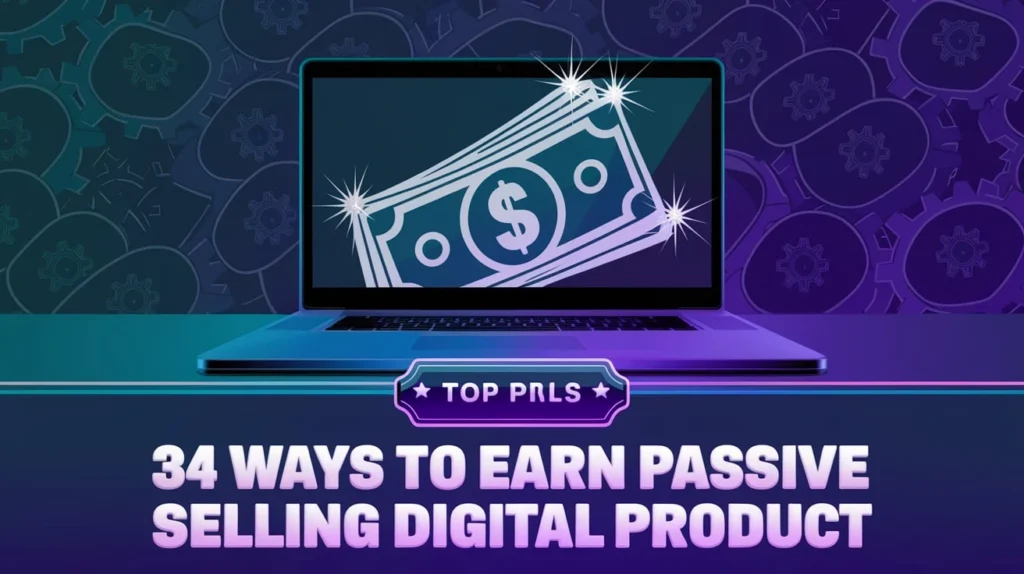
In an increasingly digital world, selling digital products has emerged as a lucrative method for generating passive income. Digital products are intangible goods that can be easily created, distributed, and sold to consumers over the internet. Common examples include e-books, online courses, graphic designs, and software applications. The ability to provide these products to a global audience offers sellers unique opportunities to earn passive income.
One of the primary advantages of selling digital products is the low overhead cost associated with the business model. Unlike physical products, which require inventory, shipping, and storage, digital products are created once and can be sold indefinitely without incurring additional costs. This makes it an appealing option for individuals looking to establish a side business or supplement their income. Entrepreneurs in the digital space also benefit from the ease of scalability, as they can reach thousands of customers with minimal effort once the product is developed and marketed effectively.
Another key benefit of selling digital products is the potential for recurring revenue. For instance, online courses can be offered through subscription models, allowing sellers to generate ongoing income as customers pay for continued access to content. Similarly, digital products like membership sites or software subscriptions can provide a steady stream of revenue that can be reinvested in business growth. Moreover, the automation of sales processes through online platforms allows sellers to focus on creating new products while their existing offerings generate passive income.
Ultimately, selling digital products presents a viable avenue for individuals looking to achieve financial independence. The convergence of low start-up costs, scalability, and recurring revenue streams makes this model particularly attractive for aspiring entrepreneurs seeking passive income opportunities.
Earn Passive Income by Selling Gmail Accounts
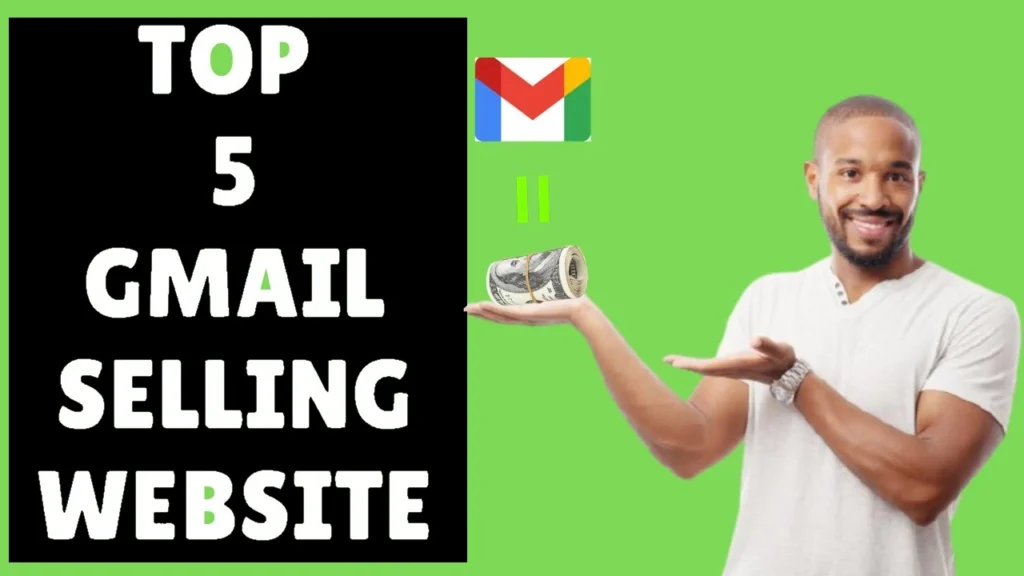
In the modern digital economy, a niche market has emerged centered around the selling of Gmail accounts. This practice, while not without its complexities, can provide a unique avenue for generating passive income. However, before delving into this venture, it is imperative to understand the legal and ethical considerations involved.
Selling Gmail accounts can be a lucrative business, especially with the increasing demand from businesses and social media marketers. These professionals often require verified accounts for seamless operations, particularly in executing campaigns that necessitate real user engagements. For instance, brands looking to establish their presence on platforms such as Google Ads may seek authenticated Gmail accounts to enhance their credibility and reach. Thus, a substantial market exists for sellers in this domain.
While engaging in this activity, one must navigate the terms of service set by Google. It is critical to note that selling Gmail accounts directly is generally against Google’s policies, which prohibits the transfer of accounts. Therefore, potential sellers should consider alternative methods of earning passive income related to Gmail, such as offering account creation services or providing enhanced security features for existing accounts.
Furthermore, ethical considerations cannot be overlooked. Sellers should ensure they are not engaging in activities that could lead to account suspensions or user data breaches. Building a reputation for providing legitimate and well-maintained accounts may also contribute positively to sustained earnings. This niche market calls for diligent research and adherence to ethical practices to thrive in this business while ensuring user trust and compliance with legal standards.
Earn Passive Income Selling YouTube Services
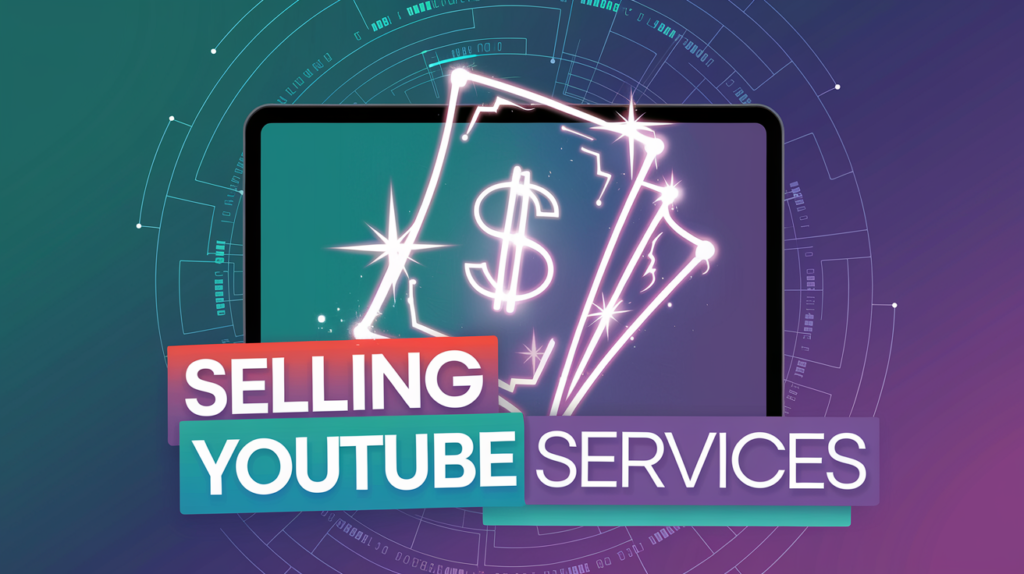
YouTube has evolved into a lucrative platform, not only for content creators but also for service providers who offer valuable YouTube-related services. These services can be categorized into various segments, such as video editing, channel optimization, content strategy consulting, and even analytics reporting. By tapping into these niches, individuals can earn passive income while helping creators enhance their channels and reach their audience effectively.
Video editing is one of the most sought-after services on platforms like YouTube. Many creators prefer not to spend hours sifting through footage, fine-tuning transitions, and adding effects. Instead, they are willing to pay freelancers or agencies to handle these tasks. By establishing a service that focuses on quality editing, an individual can attract a steady stream of clients. For instance, Jane, a freelance video editor, has built a profitable business by offering various editing packages tailored to different types of YouTube content, from vlogs to tutorials.
Channel optimization is another area that presents significant opportunities. This involves improving a YouTube channel’s visibility through SEO, keyword targeting, and sophisticated audience engagement strategies. An agency that specializes in this service can help creators enhance their reach and grow their subscriber base effectively. Take the case of Mike, an agency founder who offers channel audits and personalized optimization plans. Through his services, clients have reported increased viewer engagement and substantial growth in subscribers, which ultimately leads to more income for the creators.
Freelancers and agencies can also expand their offerings by including additional services such as content strategy development or YouTube ad management. These services promote the growth of channels while generating income for the service provider. By leveraging platforms like Upwork or Fiverr, professionals can market their YouTube services effectively, linking with creators who are eager for assistance in managing their channels successfully.
Passive Income with YouTube Shorts Channels
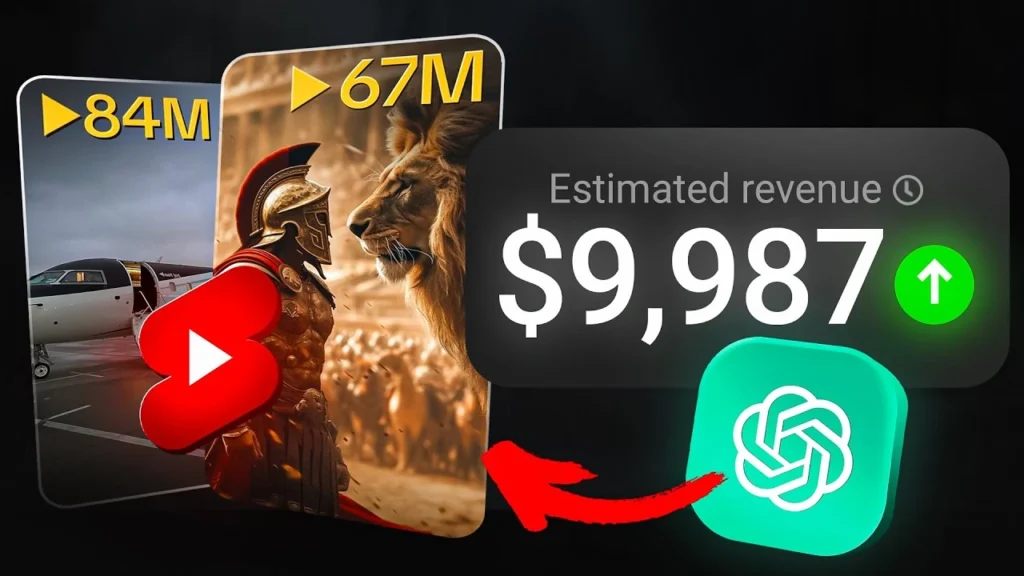
YouTube Shorts has rapidly emerged as a prominent platform for creators seeking to monetize their video content through passive income. By producing short, engaging videos, creators can tap into a vast audience while leveraging the unique format that caters to viewers’ preference for quick, digestible content. The monetization possibilities are vast, encompassing ad revenue, brand sponsorships, and merchandise sales. Notably, several successful YouTube creators have demonstrated that focused engagement and consistent uploads are pivotal to thriving in this niche.
One strategy employed by top creators is utilizing trending audio or challenges within their short videos. By aligning their content with popular themes, they amplify visibility and attract more viewers. Additionally, consistency in uploading content is critical; creators often recommend maintaining a regular posting schedule to keep their audience engaged and to signal the YouTube algorithm positively. This consistency not only builds loyalty among viewers but also increases the channel’s potential for ad revenue accumulation.
Another effective approach is cross-promotion through other social media platforms. Sharing YouTube Shorts on platforms like Instagram and TikTok can help funnel existing followers toward the YouTube channel, expanding overall reach. Successful creators often highlight the importance of understanding their target audience to tailor content that resonates with viewers, ultimately driving higher engagement rates.
The implementation of engaging thumbnails and catchy titles can also significantly enhance click-through rates. Creators must ensure that they are not only creating visually appealing content but also optimizing their video descriptions with relevant keywords to improve searchability on the platform.
As the landscape of digital content continues to evolve, leveraging YouTube Shorts can be a lucrative avenue for passive income. By focusing on quality, consistency, and audience engagement, creators can effectively transform their short videos into a sustainable income-generating venture.
Earn Passive Income by Selling YouTube Channels
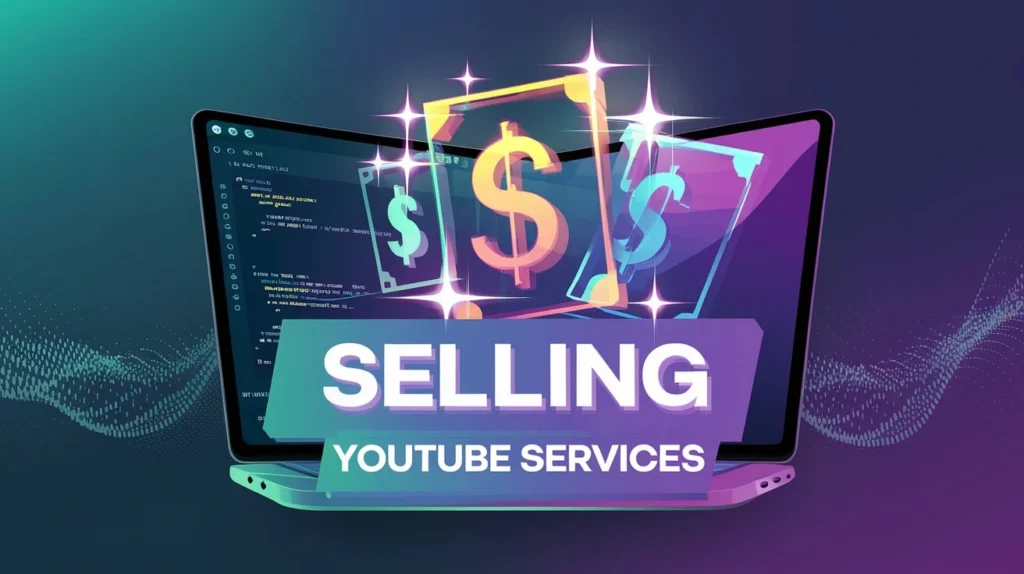
The marketplace for buying and selling established YouTube channels has gained traction in recent years, allowing content creators and investors alike to explore lucrative opportunities. This process, often referred to as “flipping” YouTube channels, involves purchasing channels with existing audiences, monetization strategies, and potential for growth. By doing so, investors can reap the benefits of passive income generated from ad revenues, sponsorship deals, and merchandise sales without the time commitment required to build a channel from scratch.
Successful transactions in the YouTube channel marketplace often hinge on various factors that affect a channel’s value. Key considerations include the number of subscribers, average views per video, niche focus, and the engagement rate of the audience. Channels with a loyal subscriber base and high engagement metrics tend to command higher prices. For instance, a channel dedicated to health and fitness with over 100,000 subscribers might attract buyers looking to tap into that lucrative niche, especially if the content aligns with trending topics in wellness.
In addition to subscriber count and engagement, the monetization setup plays a pivotal role in determining a channel’s selling price. Channels that are already part of YouTube’s Partner Program, earning ad revenue, will generally have a higher valuation. It’s also beneficial if the channel has established relationships with brands for sponsorship opportunities or has successfully ventured into merchandise sales. These factors not only represent existing financial returns but also indicate the potential for future income.
Overall, the practice of flipping YouTube channels can yield substantial returns for savvy investors willing to do their due diligence. By carefully assessing the intrinsic value of a channel, buyers may find themselves in a position to generate passive income, allowing them to enjoy a steady revenue stream from their investment while minimizing ongoing effort.
Earn Passive Income by Selling Google AdWords Ad Codes
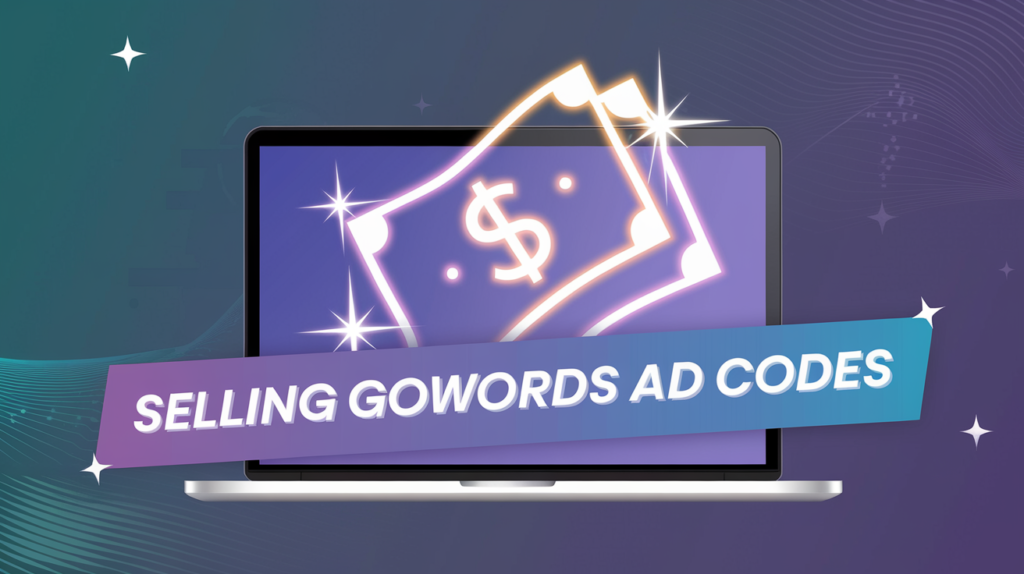
In the realm of digital marketing, Google AdWords ad codes serve as powerful tools that advertisers utilize to enhance their campaigns’ reach and effectiveness. These codes allow marketers to place ads on Google’s search results pages and across various partner websites, significantly amplifying their visibility. By leveraging the ability to create and customize these codes, marketers can target specific demographics and behaviors, thereby increasing the likelihood of successful conversions.
The passive income potential in selling Google AdWords ad codes arises from the growing demand for expertly crafted ad campaigns. Many small businesses and startups lack the expertise to create their own ad units, leading them to seek assistance from experienced marketers. When marketers sell their customized ad codes, they provide a ready-to-use solution for clients, enabling them to benefit from effective advertising without the steep learning curve. Additionally, these transactions can be structured for ongoing profit, where marketers charge a fee for periodic updates or optimizations on the ad campaigns.
Several marketers have successfully turned this strategy into a lucrative source of passive income. For instance, a digital marketing consultant may develop a set of targeted ad codes that perform exceptionally well for a client in a specific niche. By selling these ad codes to multiple clients within that niche, the consultant creates a steady income stream while retaining the rights to the original codes. Furthermore, as clients see favorable results, they may be motivated to reinvest in additional ad codes, further enhancing the marketer’s income.
Ultimately, the strategy of selling Google AdWords ad codes exemplifies an innovative way to leverage advertising expertise into a sustainable source of passive income. As the digital marketing landscape continues to evolve, the demand for effective advertising tools will likely rise, making this approach increasingly viable.
Earn Passive Income by Selling Google AdWords Accounts
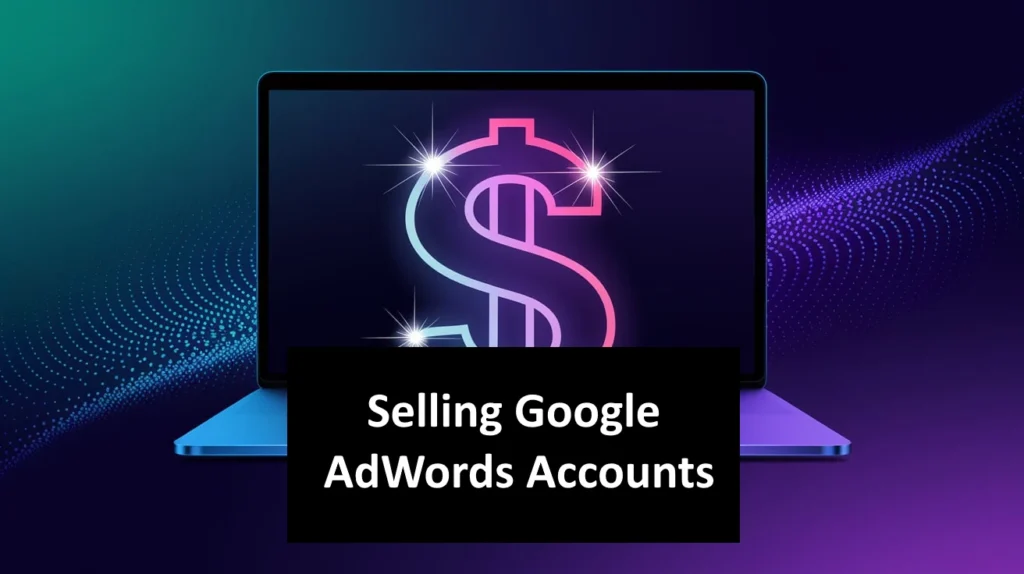
In the digital marketing ecosystem, selling Google AdWords accounts presents a viable opportunity for generating passive income. Many businesses face the obstacle of establishing their own advertising accounts with Google, which often requires time and a solid understanding of the platform. Subsequently, this creates a strong demand for established Google AdWords accounts. Such accounts can be transferred to marketers or agencies who need to expedite their online advertising efforts.
Agencies and individual marketers frequently seek accounts that have an established history and proven performance. These already verified AdWords accounts offer benefits such as higher trust scores and easier approval for advertisements. Consequently, the market for transferring Google AdWords accounts has become increasingly lucrative. By offering well-maintained accounts, sellers can attract potential buyers who are looking to jumpstart their online marketing campaigns without the initial hassle of setup.
One illustrative case is an advertising agency that specializes in niche marketing. When such an agency takes over an existing Google AdWords account, they can leverage the established history, quickly align it with their marketing strategies, and drive campaigns with reduced risk. Additionally, businesses that are expanding into new markets may prefer to acquire existing accounts as it allows them to bypass steep initial costs and immediate learning curves associated with ad management.
In order to sell Google AdWords accounts effectively, it’s crucial to ensure that the accounts are in good standing and comply with Google’s policies. Furthermore, potential sellers should evaluate the advertising performance and history to genuinely attract interested buyers. By strategically positioning oneself in this niche market, one can enjoy a consistent passive income from the sale of Google AdWords accounts.
Passive Income by Selling AdSense Accounts

In recent years, the landscape of online income generation has evolved, with a notable avenue being the sale of AdSense accounts. Google AdSense is a popular advertising network that allows website owners to monetize their content through targeted ads. The demand for established AdSense accounts has surged, particularly due to the need for pre-approval and compliance with Google’s guidelines for new accounts. Selling AdSense accounts can present a compelling opportunity for generating passive income.
However, it is essential to understand the regulations surrounding the sale of AdSense accounts. Google’s policies explicitly prohibit the transfer or sale of AdSense accounts, which means individuals who engage in this practice do so at their own risk. Violating these terms may lead to account suspension or termination. To mitigate these risks, potential sellers often take steps to ensure that the account is compliant with Google’s policies before putting it on the market, thereby increasing its attractiveness to buyers.
Several individuals have successfully ventured into the market for selling AdSense accounts, employing various strategies to maximize their earnings. For instance, sellers often focus on accounts that have a history of generating revenue. This provides buyers with assurance regarding the account’s potential profitability. Building an engaged audience on a website before selling the account can also enhance its value. Sellers may leverage online marketplaces or forums where potential buyers congregate, thereby expanding their reach. Additionally, establishing a transparent record of earnings and traffic statistics can further entice buyers by demonstrating the viability of the account.
In conclusion, while the sale of AdSense accounts can be a lucrative venture, it requires careful navigation of regulatory guidelines and market strategies to ensure success. By understanding these dynamics, individuals can better position themselves to earn passive income in this domain.
Earn Passive Income by Selling Google eBooks
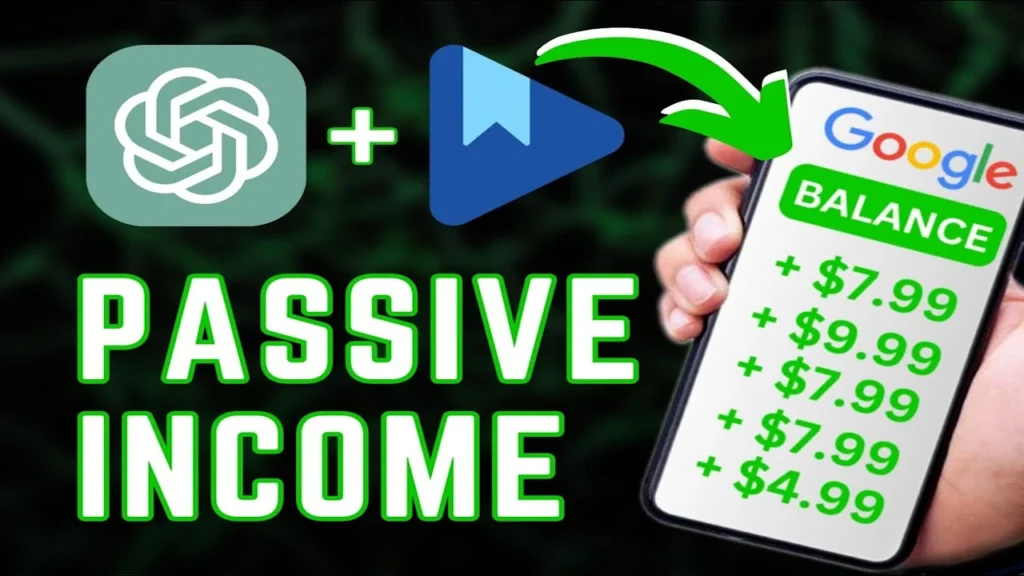
The digital product landscape has expanded considerably over the years, and eBooks have emerged as a popular option for passive income. Selling eBooks is not only convenient but provides authors and marketers with multiple avenues to generate revenue, particularly through established platforms like Google Play. This marketplace offers a global reach, giving creators the chance to sell their work to diverse audiences.
A key factor for success in the eBook market lies in understanding the target audience. Comprehensive market research allows authors to identify niche topics that cater to specific interests, enhancing their chances of engagement and sales. For instance, children’s literature, self-help guides, or specialized skill development books can attract distinct groups of readers. Moreover, offering timely and relevant content increases visibility and appeal.
Effective marketing strategies play a crucial role in driving sales volume. Authors can harness social media platforms, content marketing, and user-generated content to foster discussions about their eBooks. Collaborating with influencers who resonate with the target demographic can further amplify visibility. For instance, finding bloggers or YouTube creators who focus on similar subject matter and engaging them for reviews can result in increased exposure and sales.
Case studies demonstrate the potential for passive income through consistent eBook sales. Many authors utilize email marketing by building a subscriber list and offering free sample chapters or exclusive content. This approach not only strengthens reader relations but also encourages more purchases. Furthermore, optimizing eBook listings with relevant keywords enhances discoverability on platforms like Google Play, ensuring that the right audience finds the product. Strategic pricing, promotions, and bundled offers can also enhance revenue potential, making the journey into eBook selling a promising avenue for generating passive income.
Earn Passive Income by Selling Content
In the digital age, content creation has evolved into a lucrative avenue for generating passive income. Writers and content creators can leverage their skills to produce written materials, such as articles, blog posts, and e-books, which can be sold repeatedly. This approach not only provides an avenue for creative expression but also opens the door to recurring revenue streams.
One prominent example of success in this realm is through the sale of comprehensive guides or e-books on specialized topics. Freelancers often create detailed resources that cater to niche markets, providing value to readers while establishing themselves as authorities in their fields. Once these resources are created, they can be sold on various platforms, allowing the initial effort to yield income over time with minimal additional investment.
Additionally, many writers and agencies take advantage of membership platforms where they can sell exclusive content. For instance, creating a subscription-based blog or website enables writers to offer premium articles or newsletters to their subscribers. This model not only creates a steady income stream but also helps in building a loyal audience, leading to opportunities for upselling other products or services.
Moreover, content repurposing can significantly amplify income potential. Writers can take existing blog posts or articles, transform them into lead magnets, and use them as part of a sales funnel for more substantial offerings, such as online courses or consulting services. This strategy allows creators to maximize the impact of their work and to create layers of passive income through continuous sales.
In conclusion, selling content presents a promising opportunity for writers to cultivate passive income streams. By producing valuable materials, utilizing platforms effectively, and employing strategic marketing tactics, individuals can generate sustainable income while continuing to engage with their passions.
Earn Passive Income by Selling Domains
The domain flipping business has emerged as a lucrative avenue for individuals seeking to earn passive income. This practice involves purchasing domain names at a low cost and selling them later at a higher price. The key to success in this venture is identifying valuable domain names that have the potential to attract buyers. This includes looking for short names, keywords that are highly searched, and names that are easy to remember.
One of the first steps in domain flipping is conducting thorough research. Domain valuation depends on various factors, such as length, brandability, and the presence of popular keywords. Tools like Google Trends can be helpful in identifying trending keywords, which are essential for picking desirable domain names. For instance, think of domain names associated with emerging industries or current trends. A name that aligns with a booming niche could fetch a significant selling price down the road.
Successful domain traders often share anecdotes about acquiring domains for just a few dollars and later selling them for thousands. For example, the acquisition of a domain like “homeworkhelper.com” for $10 and its subsequent sale for over $3,000 illustrates the potential profitability within this business. Networking with other domain investors can also provide insights into market demand and valuation strategies. Additionally, utilizing online marketplaces, such as Flippa or Sedo, allows sellers to list their domains for visibility among potential buyers.
After successfully selling a domain, sellers can reinvest their profits into purchasing more domains, thus creating a passive income stream. It’s worthwhile to keep in mind that the domain flipping business requires patience and diligence, but with the right approach, it can be a rewarding way to generate passive income.
Earn Passive Income by Selling Niche Content
In the digital landscape, the importance of niche marketing cannot be overstated. This strategy involves targeting a specific audience with specialized content, thus creating opportunities for passive income through tailored products. By developing content focused on a particular interest or demand, creators can not only attract a dedicated audience but also foster a loyal customer base. Selling niche content, such as e-books, online courses, or digital downloads, can be a lucrative avenue for generating ongoing revenue.
One notable example is the online platform Skillshare, where instructors share unique knowledge through classes centered around specific skills. These classes often cater to niche interests, such as watercolor painting or user experience design, and the instructors earn passive income as learners enroll over time. This model illustrates the potential for creators to cultivate a dedicated following who returns for more specialized knowledge, thus increasing their income streams.
Furthermore, many successful bloggers utilize niche content to generate passive income through affiliate marketing. By focusing their blogs on topics like rare collectibles or sustainable living, they attract targeted traffic that is more likely to engage with suggested products. For instance, a blogger dedicated to vegan recipes may offer digital meal plans or e-books filled with content tailored to health-conscious readers, thus monetizing their niche expertise.
Creating niche content also allows for the exploration of various digital products that can be offered in low overhead formats. The process of once creating valuable content and automating its sales can lead to a continual earning cycle. Therefore, determining an appropriate niche is crucial. Conducting market research to identify gaps or underserved areas is vital as these insights will not only guide your product creation but also enhance its potential for passive income.
Earn Passive Income by Selling Popular Licensing Memberships
The digital product marketplace has created various opportunities for entrepreneurs to earn passive income, with licensing memberships emerging as a particularly lucrative avenue. When an individual or business offers licenses, they provide others with the rights to use, modify, or distribute their digital products. This can include software, design templates, music, online courses, and more. Licensing is beneficial as it allows creators to retain ownership while generating revenue through membership fees.
Successful membership sites that focus on licensing have been seen in various niches. For instance, creative professionals often seek exclusive access to high-quality design assets. Platforms like Adobe Stock and Envato Elements offer subscription-based memberships that allow users unlimited access to a wide range of digital assets. Entrepreneurs who establish similar licensing models can benefit from a steady stream of passive income as memberships are renewed monthly or annually.
Moreover, another prevalent example is in the realm of online education. Entrepreneurs can create membership sites that offer a library of courses for a singular monthly fee. Platforms like MasterClass and Skillshare exemplify this model. By curating valuable content and providing it through a membership structure, content creators can build thriving communities. This not only enhances customer retention but also defines a reliable income stream from subscriptions.
To set up a successful licensing membership model, one must focus on offering unique and high-quality digital products that fulfill a specific market need. Building a community around these offerings through forums, newsletters, or social media can foster loyalty, leading to increased member retention rates. As more individuals recognize the value of easily accessible digital resources, the potential for generating passive income through licensing memberships remains vast and continually evolving.
Earn Passive Income by Selling Local Review Services
In today’s competitive market, local businesses often seek ways to enhance their online presence and attract new customers. One effective strategy is to provide review services tailored specifically for these businesses. By offering to curate, manage, and promote reviews on platforms like Google, Yelp, and Facebook, service providers can tap into a consistent income stream and strengthen local businesses’ reputations.
The launch of a review service can commence with a simple proposal reminiscent of social media management. By packaging this service, you can create attractive options for local businesses, such as responding to customer reviews, generating review requests, or leveraging positive feedback in marketing campaigns. This creates a well-defined niche that many businesses are eager to invest in, especially those concerned with maintaining a positive image in the community.
Through a subscription model, clients can enjoy monthly services that aim to bolster their online reputation. This could include monitoring their review platforms, responding to customer feedback, and even conducting periodic assessments of their online standing. As positive reviews lead to more customers, clients will likely remain loyal, ensuring that your income remains consistent.
Moreover,successful review services can lead to substantial referrals, further expanding your client base. Consider the example of a local web design firm that began offering review management as an add-on service. Over time, they not only increased their income but also gained numerous referrals from satisfied clients who realized the value of a positive digital reputation.
In conclusion, by offering local review services, individuals can cultivate a lucrative passive income strategy. This model is particularly appealing since it necessitates minimal ongoing effort after establishing systems for managing and promoting reviews, thus allowing you to focus on growth and expansion in other areas of your business.
Earn Passive Income by Selling Articles
Selling articles has emerged as a viable avenue for earning passive income, particularly for those who possess strong writing skills and expertise in content marketing. The advent of digital platforms has created new opportunities for freelance writers to monetize their work efficiently. Writers can create high-quality articles on trending topics or their areas of expertise, then sell these articles directly to clients or through established marketplaces.
Several platforms facilitate the sale of articles, allowing writers to reach a wider audience and sell their work with minimal effort. Websites such as Medium, Fiverr, and Upwork provide writers with the ability to showcase their portfolios, connect with potential buyers, and establish a reputation in their respective niches. By leveraging these platforms, writers can generate passive income through one-time sales or ongoing projects, depending on their business model.
Additionally, content marketing plays a crucial role in promoting articles effectively. Writers should consider implementing strategies such as SEO optimization, which enhances the visibility of their articles in search engines, making it easier for potential buyers to find their content. Utilizing social media channels can also amplify exposure and attract a larger audience. Writers with a significant online presence can create a loyal customer base, ensuring a steady flow of income from article sales.
Successful freelance writers often emphasize the importance of maintaining quality, consistency, and originality in their work. Examples of thriving writers in this domain often share insights into how they navigate the complexities of content marketing. Establishing niche authority and ensuring customer satisfaction will not only lead to repeat sales but can also pave the way for additional income streams, such as subscriptions or membership services. This approach highlights the potential for passive income through selling articles, making it an appealing option for aspiring digital entrepreneurs.
Earn Passive Income by Selling Articles via ChatGPT
The rising popularity of artificial intelligence has opened new avenues for generating passive income, particularly through content creation. One such innovative tool is ChatGPT, which can be effectively utilized to produce high-quality articles quickly and efficiently. Leveraging this technology can lead to profitable opportunities for those interested in selling articles online.
To begin with, users can access ChatGPT to generate articles on a wide variety of topics. This allows individuals to cater to diverse audiences, broadening their market reach. By inputting specific requirements and prompts, writers can harness the AI’s capacity to create tailored content that meets client expectations. This process not only saves time but also minimizes the effort traditionally associated with writing articles from scratch.
Once the articles are generated, individuals can sell them through different platforms, such as freelance websites or personal blogs. Freelance platforms often provide a ready-made marketplace for selling articles, connecting writers with clients looking for specific content. Alternatively, if a writer operates their own website, they can showcase samples and build a portfolio, attracting potential buyers directly.
Another advantage of using ChatGPT for article generation is the potential for scalability. As output increases, so can revenue streams, enabling writers to focus on expanding their offerings or even creating a subscription model for ongoing content needs. Additionally, it’s essential to review and edit the AI-generated articles to ensure that they align with the desired quality and tone, providing value to clients.
Ultimately, selling articles with the aid of ChatGPT allows for the combination of technology and creative writing, facilitating a modern approach to earning passive income. This integration not only enhances productivity but also makes it feasible to tap into a growing market for digital content in an ever-evolving landscape.
Realizing Service Provision to Agencies
In today’s digital age, individuals proficient in creating digital products have the unique opportunity to extend their services to agencies that require such offerings. Agencies often seek external partners to enhance their service portfolio without the need to expand their internal teams. This collaboration not only allows agencies to fulfill client demands but also enables freelancers to tap into a consistent stream of income.
Freelancers looking to provide services to agencies should focus on building a professional portfolio that showcases their expertise in digital products. This includes high-quality examples of their work, testimonials from past clients, and a clear articulation of their skills. By presenting themselves as capable partners, freelancers can position themselves to attract agency contracts that generate passive income over time.
Successful case studies illustrate this trend effectively. For instance, a graphic designer may partner with a marketing agency to create promotional materials for various clients. By establishing a relationship where their services are regularly required, the designer not only secures multiple projects but also benefits from a reliable income source, streamlining their workflow for future endeavors.
Moreover, developing a niche specialty within the realm of digital products can further enhance one’s appeal to agencies. For example, a freelancer specializing in video content may find substantial opportunities through agencies that offer digital marketing services. This approach can lead to long-term partnerships, enriching the freelancer’s network and financial stability.
It’s essential to foster these relationships by maintaining open communication, delivering high-quality work promptly, and being adaptable to agency needs. By actively engaging with agencies and consistently providing value, freelancers can create a sustainable passive income stream while leveraging their expertise in digital products.
App Premium Account Sales
The emerging market for app premium account sales has garnered significant attention among digital product entrepreneurs. This niche involves offering users access to premium features in popular applications without the necessity of going through the official channels. This allows individuals to tap into a variable yet lucrative source of passive income. Apps that commonly feature premium accounts include streaming services, gaming platforms, and productivity tools.
One successful approach in this market is utilizing established platforms where users seek to enhance their experiences. For instance, individuals often sell premium accounts for well-known gaming applications, providing buyers with advantages such as access to exclusive content or advanced functionalities that enhance gameplay. Sellers can generate passive income by acquiring legitimate premium accounts and reselling them to interested customers at a profit. It’s crucial to conduct market research to determine which apps have robust demand and minimal competition, thereby increasing the likelihood of securing consistent sales.
Moreover, it is critical for sellers to maintain ethical practices while engaging in account sales. Many applications have terms of service that prohibit the resale of accounts, which can lead to account bans or legal repercussions. Therefore, exploring partnerships or alternatives such as creating accounts on behalf of users through a subscription model can be advantageous. This model can provide users with a consistent access point to premium experiences while ensuring that sellers operate within the confines of legality.
To conclude, the market for app premium account sales offers a promising pathway to generating passive income. By understanding consumer needs and legal frameworks, one can effectively tap into this niche and create a sustainable revenue stream through digital product sales.
Conclusion and Call to Action
In reviewing the diverse strategies presented for earning passive income through the sale of digital products, it is clear that the digital landscape offers abundant opportunities. From creating online courses and e-books to developing mobile applications and printables, the methods discussed provide various avenues for generating revenue with minimal ongoing effort. Each approach caters to different skills, interests, and resource availability, making the potential for passive income accessible to a wide range of individuals.
Moreover, the significance of leveraging digital platforms to maximize reach cannot be overstated. By effectively utilizing social media, email marketing, and e-commerce sites, aspiring entrepreneurs can promote their digital products to targeted audiences, increasing their potential income streams. The ease of creating and distributing digital products further reinforces the appeal of this income-generating strategy.
For those intrigued by the prospect of passive income, it is essential to not only contemplate these strategies but also to take concrete steps toward implementation. Consider selecting one of the outlined methods that resonates with your skills and passions. Begin by conducting thorough research, developing your product, and exploring marketing options that suit your chosen niche. Remember that success in passive income generation often requires an initial investment of time and effort, but the long-term rewards can be substantial.
As you embark on this journey, stay informed about market trends and remain adaptable in your approach. The digital product realm is continually evolving, and being open to learning and adapting will enhance your chances of success. Embrace the potential of creating passive income through digital products and take action today to build a sustainable financial future.


.jpeg)






